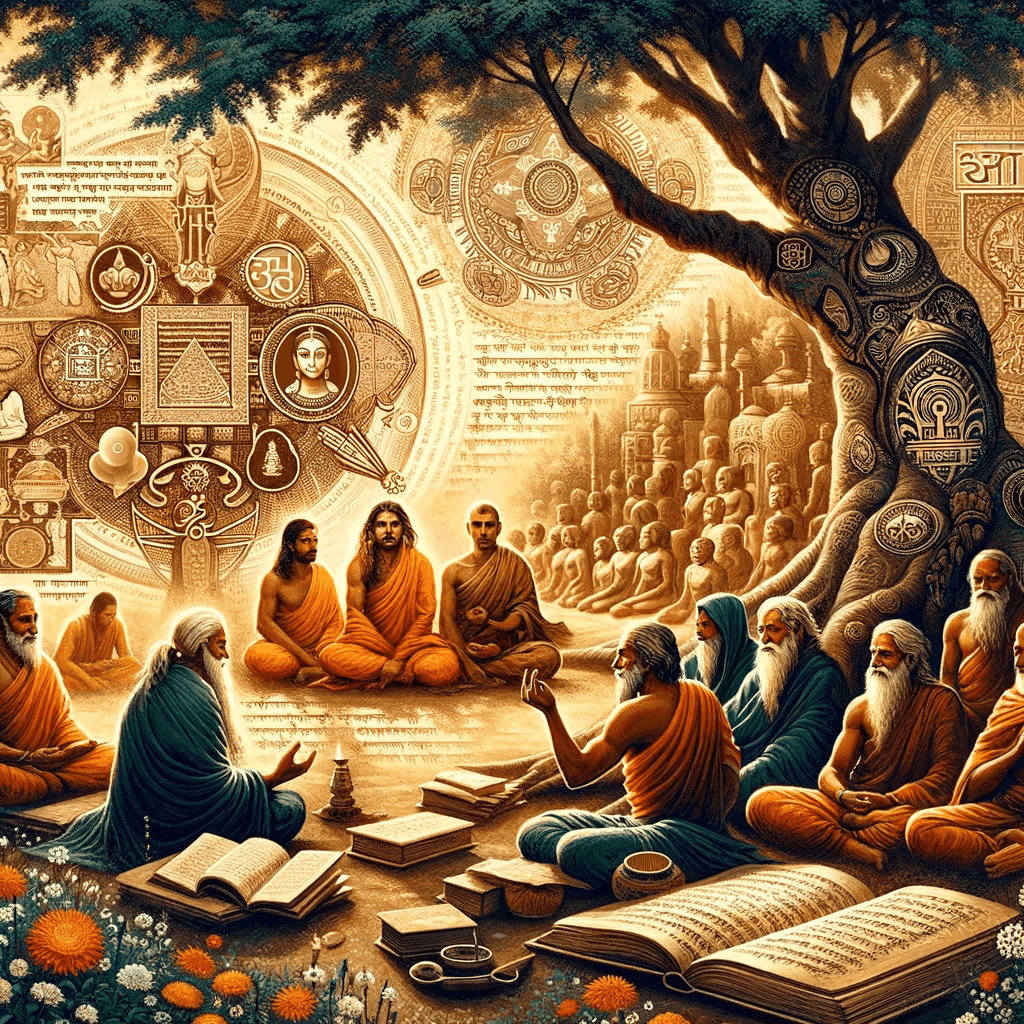Indian Philosophy: Exploring the Rich Tapestry of Vedanta, Yoga, and Other Schools of Thought
Indian philosophy encompasses a vast and diverse range of thoughts and ideas, developed over thousands of years. It includes six classical schools (Darshanas) – Nyaya, Vaisheshika, Samkhya, Yoga, Mimamsa, and Vedanta, along with several non-orthodox schools like Buddhism and Jainism. These philosophies offer profound insights into metaphysics, ethics, the nature of reality, and the pursuit of knowledge and liberation.
Information and Other Details

Information on the Discovery
The discovery and understanding of Indian philosophy in the modern world have largely been through the translation and study of ancient texts. Scholars, both Indian and Western, have played a pivotal role in bringing these philosophical ideas to a global audience.
Story
The story of Indian philosophy is one of intellectual rigor and spiritual inquiry. It's a journey through diverse perspectives on life, the universe, and the nature of existence, from the pragmatic to the transcendental. Each school of thought offers unique viewpoints, often complementing or debating with one another.
History of the Discovery
Indian philosophy has evolved through centuries, with its earliest roots in the Vedic texts. The Upanishads, the Bhagavad Gita, the Brahmasutras, and various other ancient texts lay the foundation for the various schools of Indian philosophical thought.
Scriptural References and Its Mentions
Key texts include the Vedas and Upanishads for Vedanta, the Yoga Sutras of Patanjali for Yoga, the Nyaya Sutras for Nyaya, the Vaisheshika Sutra for Vaisheshika, and the Samkhya Karika for Samkhya. The Mimamsa Sutra is central to Mimamsa philosophy.
Global Influence/Acceptance
Indian philosophy has significantly influenced Western thought, particularly in the realms of metaphysics, ethics, and psychology. Concepts from Vedanta and Yoga, in particular, have been widely embraced in Western spiritual and philosophical discourse.
...




